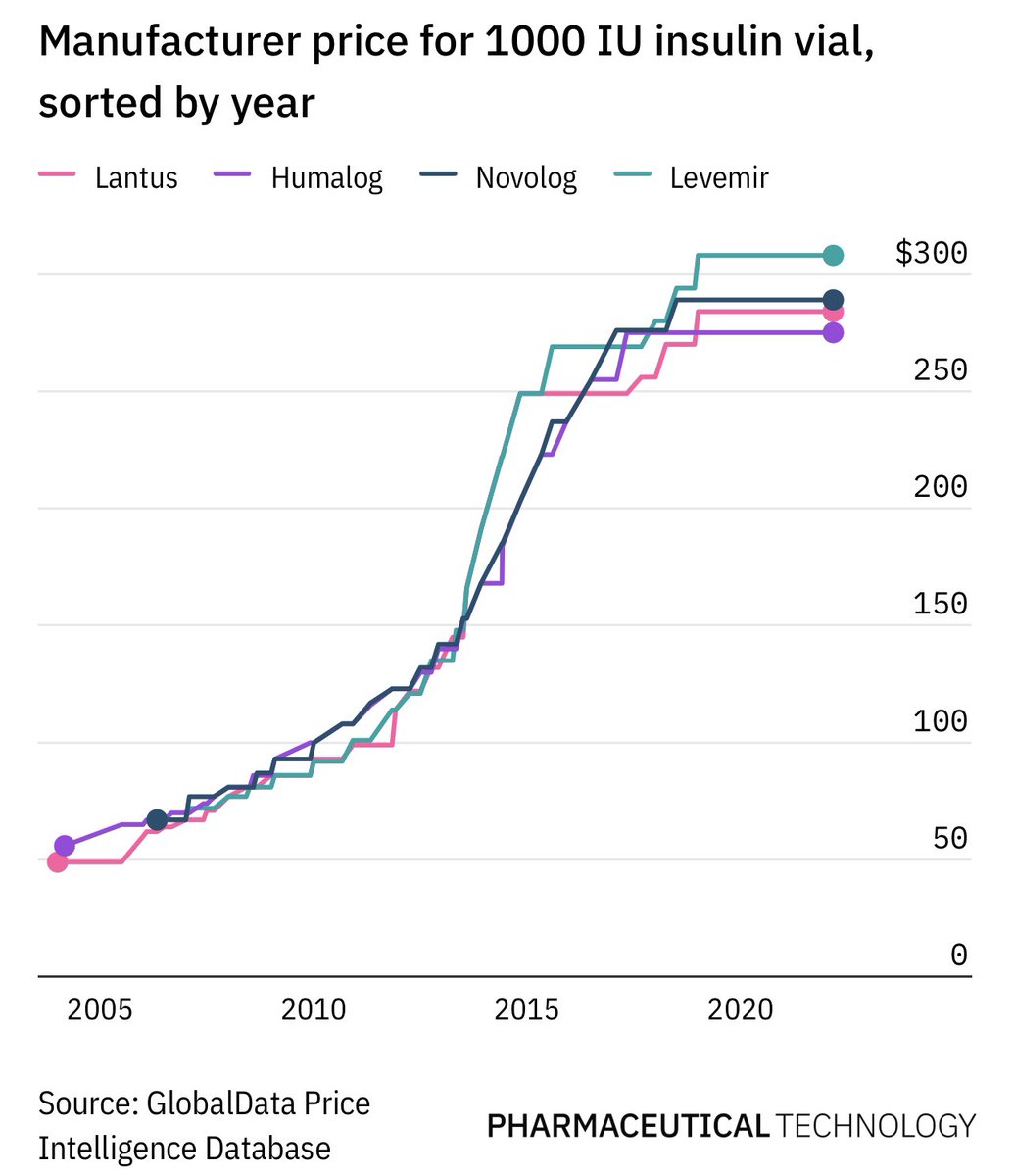
When Medicare cannot negotiate this is what happens:
Revlimid price per month
~$4,500 in 2005
~$18,500 in 2022
This happens with numerous drugs. Not possible in any other country. @DavidP4AD oversight.house.gov/sites/democrat…
1/
Revlimid price per month
~$4,500 in 2005
~$18,500 in 2022
This happens with numerous drugs. Not possible in any other country. @DavidP4AD oversight.house.gov/sites/democrat…
1/

Why would companies innovate when they can meet investor expectations by increasing the price of old drugs?
This pathway slows the number of innovative drugs are launched. Stopping this practice will lead to more innovation not less.
This pathway slows the number of innovative drugs are launched. Stopping this practice will lead to more innovation not less.
Happens with old drugs. Lifesaving drugs. From insulin and beyond. #Insulin4all 

So do I think there is a risk to true innovative drugs if Medicare negotiates and if price increases above inflation are capped? No
There will be more reward for better drugs. There will be more truly innovative drugs.
There will be more reward for better drugs. There will be more truly innovative drugs.
I will tell what we can do to help companies truly innovate: totally reform the regulatory process.
The FDA process and requirements have gotten ridiculously complex and demanding and contribute to high and rising cost of getting drugs approved.
The FDA process and requirements have gotten ridiculously complex and demanding and contribute to high and rising cost of getting drugs approved.
A lot of stuff required give an aura of perfection and precision but accomplish nothing more than that. An aura.
So a randomized trial that can and should cost tens of millions costs hundreds of millions. Change that.
So a randomized trial that can and should cost tens of millions costs hundreds of millions. Change that.
Second, reform the patent system for heaven's sake. You cannot allow patent life to be prolonged on an on with new and additional patents on the same drug. Laws have to be changed.
Eg: Ibrutinib ~88 patents. Launched 2013. Patent lasts till 2036. fiercepharma.com/pharma/don-t-u…
Eg: Ibrutinib ~88 patents. Launched 2013. Patent lasts till 2036. fiercepharma.com/pharma/don-t-u…
Third, reform the regulatory process so generics and biosimilars can enter more easily.
Set up reciprocal approval with selected European countries so regulators are not doing overlapping work when time is of the essence.
Set up reciprocal approval with selected European countries so regulators are not doing overlapping work when time is of the essence.
More solutions in this paper. @BloodCancerJnl nature.com/articles/s4140…
More on Medicare negotiation in this thread
https://twitter.com/VincentRK/status/1550889353970417664
• • •
Missing some Tweet in this thread? You can try to
force a refresh







